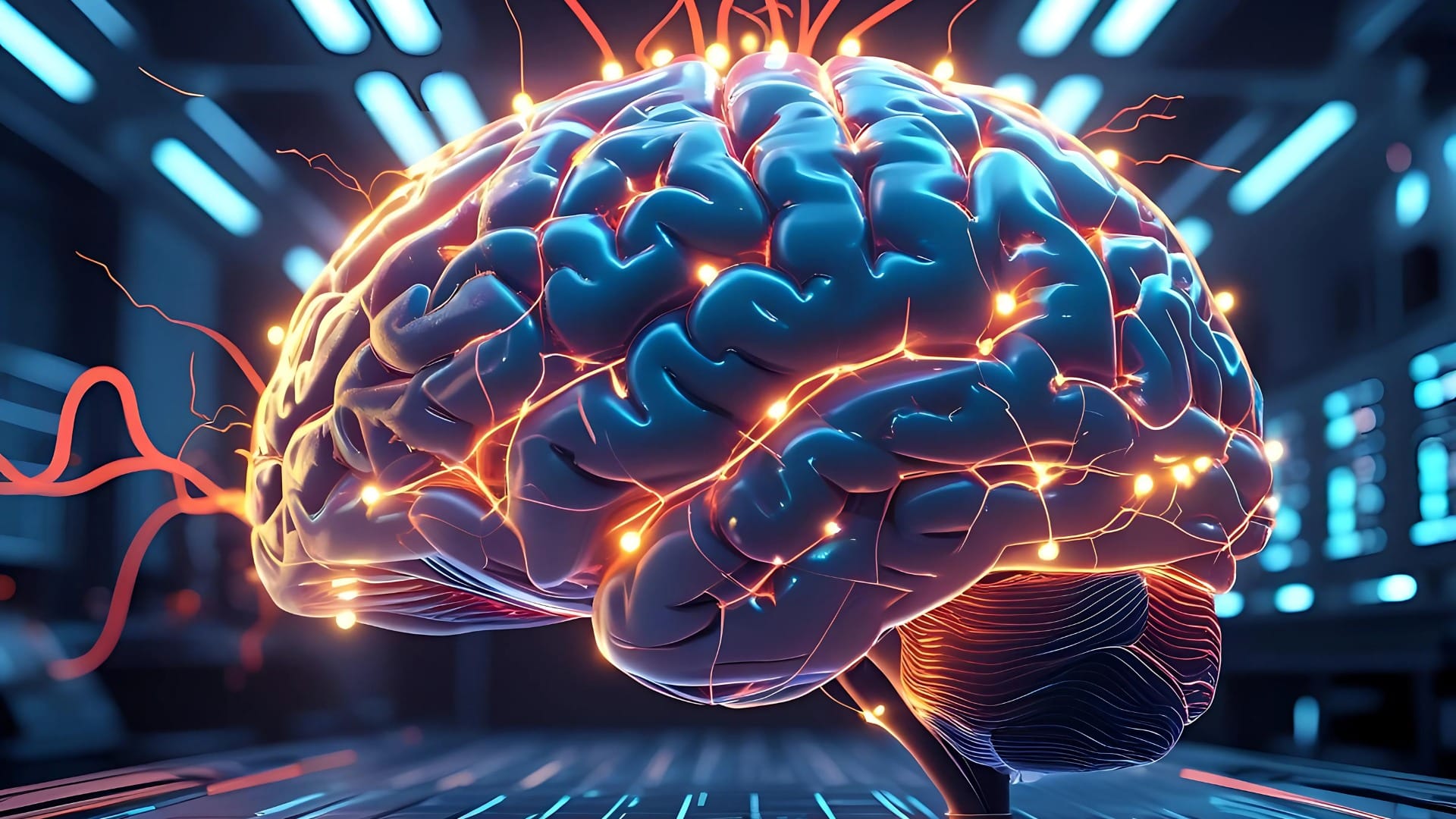AI is a powerful mirror of human intelligence
As AI continues to evolve, it presents both opportunities and challenges that necessitate a thoughtful and ethical approach.

Overview
Definition of Artificial Intelligence
Artificial Intelligence, often abbreviated as AI, is a powerful mirror of human intelligence. It encompasses the development of algorithms and computational models that enable machines to perform tasks that typically require human intelligence, such as learning, reasoning, problem-solving, and decision-making. AI has a rich history, dating back to the mid-20th century, and has experienced significant advancements in recent years. Its powerful capabilities have led to a wide range of applications across various industries, including healthcare, finance, transportation, and more. As AI continues to evolve, it presents both opportunities and challenges that necessitate a thoughtful and ethical approach.
History of Artificial Intelligence
As a researcher in the field of Artificial Intelligence, I have witnessed the remarkable evolution of this technology over the years. The journey of Artificial Intelligence evolution has been marked by significant milestones and breakthroughs. From early symbolic approaches to the current era of machine learning and deep learning, the evolution of Artificial Intelligence has reshaped the way we perceive technology and its capabilities. The rapid evolution of Artificial Intelligence has led to advancements in various domains, including healthcare, finance, and autonomous systems.
The potential of Artificial Intelligence evolution to revolutionize industries and enhance human capabilities is truly inspiring.
Applications of Artificial Intelligence
Artificial Intelligence has revolutionized various industries, including healthcare, finance, and education. It has enabled the development of sophisticated algorithms that can analyze large datasets to identify patterns and make predictions. Moreover, AI has facilitated the automation of routine tasks, freeing up human resources to focus on more complex and creative endeavors. From personalized recommendation systems to autonomous vehicles, the impact of AI is far-reaching and continues to expand. In the realm of coding resources, AI tools and platforms are streamlining the development process and empowering developers to create innovative solutions.
Ethical Considerations
Privacy and Data Security
As an AI researcher, I am keenly aware of the importance of privacy and data security in the development and deployment of AI systems. Ensuring the protection of sensitive information and personal data is paramount in building trust with users and stakeholders. In the context of AI, privacy concerns arise from the vast amount of data collected and analyzed, raising questions about consent, data ownership, and the potential for misuse. Data security, on the other hand, is essential for safeguarding against unauthorized access, breaches, and cyber threats. It is crucial to address these issues through robust encryption, access controls, and ethical data handling practices. Furthermore, the ethical implications of AI extend to its impact on wages and employment, as automation and AI technologies reshape labor markets and job dynamics. This necessitates a thoughtful approach to ensure fair and equitable outcomes for workers and society at large.
Bias and Fairness
As I delve into the ethical considerations of artificial intelligence, bias and fairness emerge as crucial focal points. Ensuring that AI systems are free from bias and uphold fairness is a challenging task. It requires a comprehensive understanding of the societal implications and the potential harm that biased algorithms can cause. Addressing this issue is essential for building trust and credibility in AI technology. Furthermore, the responsibility to mitigate bias and promote fairness falls on the shoulders of AI developers and policymakers. The impact of biased AI systems on society is immeasurable, and the consequences of overlooking this aspect can be severe. It is imperative to recognize the value of fairness as a priceless relic in the development and deployment of AI applications.
Accountability and Transparency
As an AI developer, I am constantly aware of the ethical implications of the technologies I create. Accountability and transparency are crucial aspects of ensuring that AI systems are developed and deployed responsibly. One of the key challenges we face is the potential for bias in AI algorithms, which can have far-reaching consequences. To address this, we are committed to unlocking potential in diverse teams and fostering an inclusive environment where different perspectives are valued. By doing so, we can mitigate the risks associated with biased AI systems and work towards a future where AI benefits everyone.
Challenges and Limitations

Technical Limitations
As a researcher in the field of artificial intelligence, I have encountered various challenges and limitations that have shaped the development of AI technology. One of the key limitations is the issue of data quality, which plays a critical role in the performance of AI systems. Additionally, the concept of explainability in AI models has been a significant area of concern. Another important aspect is the ability to adapt and learn in dynamic environments. These factors have led to the realization that there is no Golden Key to overcoming all technical limitations in AI.
Ethical Challenges
As I delve into the ethical challenges surrounding Artificial Intelligence, it's crucial to address the complex issues that arise in this domain. One of the key concerns is the potential for bias and fairness in AI systems, which can have far-reaching implications. Another critical aspect is the need for accountability and transparency in the development and deployment of AI technologies. Additionally, the ethical implications of AI extend to privacy and data security, which demand careful consideration and robust safeguards. These ethical challenges highlight the intricate balance between technological advancement and societal well-being, reinforcing the need for comprehensive ethical frameworks in AI development and implementation.
Economic Implications
As I reflect on the Economic Implications of artificial intelligence, I am struck by the potential for this technology to reshape industries and redefine traditional economic structures. The concept of AI disrupting existing economic paradigms brings to mind the phrase "Defying Gravity" as it captures the essence of AI's ability to defy conventional limitations and propel industries to new heights. This phenomenon is evident in the way AI is revolutionizing production processes, market dynamics, and labor markets, creating a new economic landscape that is both exciting and challenging. As we navigate this transformative era, it is imperative to carefully consider the economic implications of AI and its potential to reshape global economies.
Future of Artificial Intelligence

Advancements in AI Research
Artificial Intelligence has made significant strides in recent years, with breakthroughs in machine learning, natural language processing, and computer vision. These advancements have paved the way for new applications and have the potential to revolutionize various industries. As I delve into the realm of AI, I am captivated by the ethereal beauty of its capabilities. The ability to mimic human cognition and learn from vast datasets is akin to witnessing ethereal fireflies dancing in the night sky, each one representing a spark of innovation and potential. The future of AI holds promise, and I am excited to witness the further evolution of this remarkable technology.
Impact on Society
The impact of artificial intelligence (AI) on society is profound, encompassing various aspects of our daily lives. As AI continues to advance, it has the potential to revolutionize industries, improve healthcare, and enhance overall efficiency. AI technologies are being integrated into social platforms, transportation systems, and communication networks, shaping the way we interact and connect. The ethical implications of AI's societal impact are significant, raising concerns about privacy, bias, and accountability. As we navigate this transformative era of AI, it is crucial to consider the potential consequences and ensure that AI benefits society as a whole.
Conclusion
As I reflect on the future of artificial intelligence, it is clear that the advancements in AI research are paving the way for a new era of innovation and progress. The impact on society is undeniable, with AI technologies influencing various aspects of our lives, from healthcare to transportation. In conclusion, the potential for AI to transform industries and improve efficiency is immense, and it is essential to consider the ethical implications and societal consequences of its widespread adoption.
The future of artificial intelligence is an exciting and rapidly evolving field. As technology continues to advance, AI is poised to revolutionize various industries, from healthcare to finance and beyond. At Bookspotz, we are dedicated to exploring the latest developments in AI and its impact on society. Join us as we delve into the world of AI and discover the endless possibilities it holds. Visit Bookspotz today to stay informed and inspired by the ever-changing landscape of artificial intelligence.




